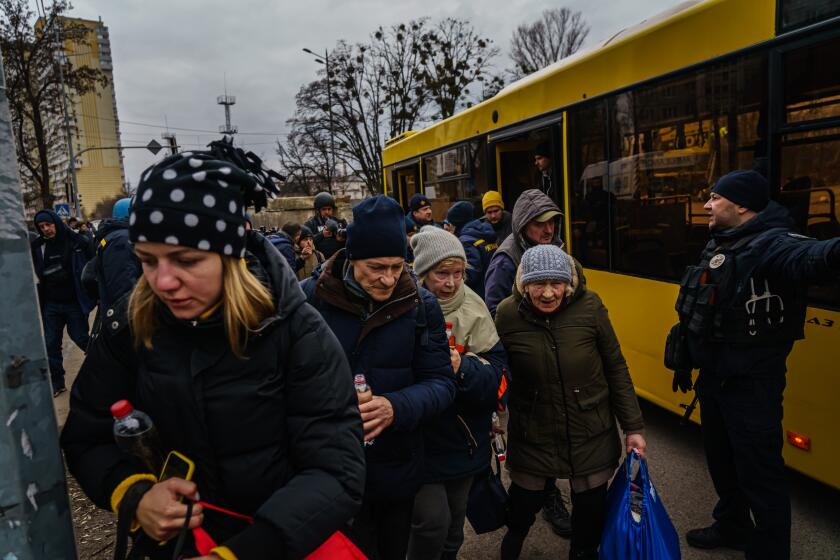Polish plan to get fighter jets into hands of Ukrainian pilots complicates Harris’ visit to Warsaw

WASHINGTON — The Polish government’s decision to transfer fighter jets to the U.S. in the hopes of getting them into the hands of Ukrainian pilots has complicated a visit by Vice President Kamala Harris just hours before she was set to depart for Warsaw.
American officials were caught off guard when the Polish government announced on Tuesday that it would send about two dozen Soviet-era MiG-29 fighter planes to the U.S. air base at Ramstein, Germany. Polish officials apparently had hoped the U.S. would then deliver the planes to Ukraine, whose pilots are trained on the aircraft and are desperately trying to fend off a Russian invasion.
But Russia has warned that sending the aircraft to Ukraine would be seen as an act of war, potentially broadening the conflict in Ukraine. American officials said they were not consulted about Poland’s abrupt decision and would not sign on to the plan. Polish officials were counting on receiving new U.S. fighter jets to replace those they put at Ukraine’s disposal.
“It was a surprise move by the Poles,” Victoria Nuland, undersecretary of State for political affairs, told a congressional panel Tuesday.
A no-fly zone to protect Ukraine from Putin’s bombs would involve complex ground operations and risk U.S.-Russian conflict and wider war in Europe.
Pentagon Press Secretary John F. Kirby said Poland would have to take the risk on its own if it wanted to deliver the planes, given the need to fly them over contested airspace.
“It is simply not clear to us that there is a substantive rationale for it,” Kirby said in a statement. “We will continue to consult with Poland and our other NATO allies about this issue and the difficult logistical challenges it presents, but we do not believe Poland’s proposal is a tenable one.”
The surprise Polish offer sent U.S. officials scrambling for last-minute explanations. The administration had hoped Harris’ high-level visit to Poland and Romania would highlight what has been unusually strong unity among the United States and its allies in Europe.
Harris is expected to leave Washington on Wednesday and meet with leaders in both countries Thursday and Friday before returning to the U.S. Harris played a similar role during Russia’s buildup last month, meeting with allies at the Munich Security Conference in Germany.
Poland and Romania border Ukraine and were former Soviet satellites. Since the fall of the Iron Curtain, both countries have joined NATO, signing a treaty that guarantees the United States and Europe would defend them against Russian aggression.
U.S. officials have repeatedly said they will defend any NATO member that is attacked by Russia if its president, Vladimir Putin, chooses to broaden his war. Putin has called the breakup of the Soviet Union a grievous tragedy in the history of his country.
“The vice president’s trip to Poland and to Europe is part of our effort to show our strong support for our NATO allies and partners, the security assistance they’ve been providing, their role in accepting and welcoming refugees from Ukraine,” White House Press Secretary Jen Psaki told reporters traveling with the president Tuesday.
Psaki said the United States would also discus Poland’s proposal to arm Ukraine.
Poland and Romania are bearing the brunt of the refugee crisis. Poland has accepted more than 1.2 million people escaping Ukraine, while Romania has taken in about 82,000 people fleeing Russia’s onslaught.
More to Read
Get the L.A. Times Politics newsletter
Deeply reported insights into legislation, politics and policy from Sacramento, Washington and beyond. In your inbox three times per week.
You may occasionally receive promotional content from the Los Angeles Times.













